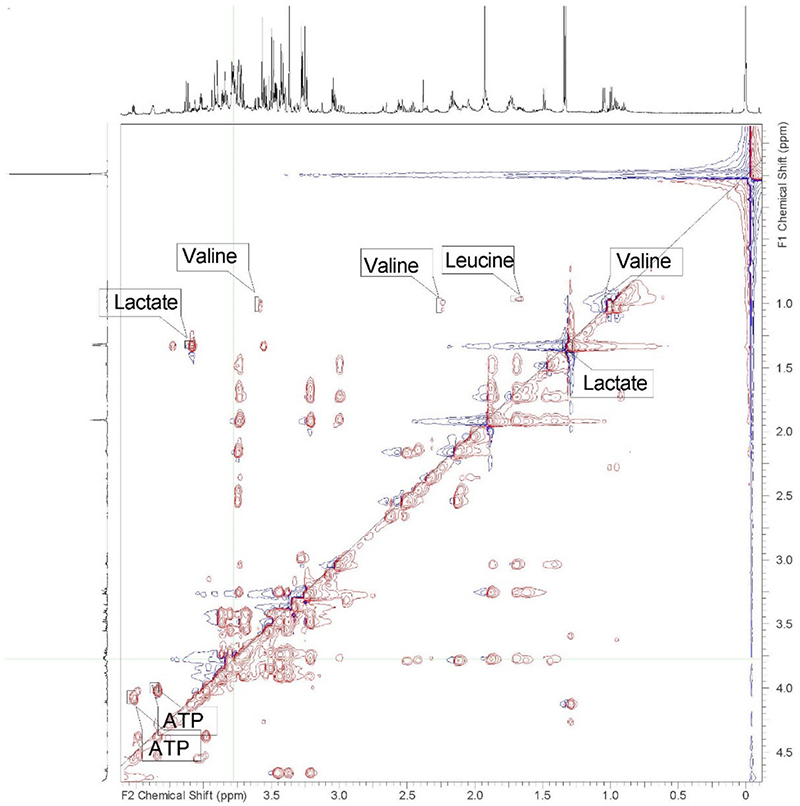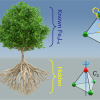
North Carolina State University researchers have conducted the first assessment of metabolites in African savanna elephants (Loxodonta africana), an important step in understanding the relationship between metabolism and health in these endangered animals.
“The bottom line is that we have taken the first step in what will be a lengthy process to advance our understanding of the relationship between metabolites and elephant health”, says Michael Stoskopf, a professor of clinical sciences at NC State.
For the study, researchers collected blood samples from six African savanna elephants at the North Carolina Zoo. All of the elephants were healthy adults and received the same diet. Analysis was carried out with 1D and 2D 1H NMR spectroscopy methods.

2D TOCSY proton NMR spectra of the polar extract of whole blood from an 18-year-old female African savanna elephant (Loxodonta africana). Representative labelled peaks are valine, lactate, leucine and adenosine triphosphate (ATP). Reproduced under a CC BY licence from https://doi.org/10.3390/metabo12050400
“We’ve established a technique that allows us get an accurate snapshot of metabolites in these elephants”, Stoskopf says. “We found little difference in metabolites among the six elephants, likely due to their sharing a common diet. This work represents a good start, there were no particular surprises here, but establishing the metabolites present in elephants that are on a very specific diet gives us a snapshot of metabolism in these animals.”
“Elephants are highly adaptable, and live in a wide variety of environments on a wide variety of diets”, says Kimberly Ange-van Heugten, a teaching associate professor of animal science at NC State. “This study should serve as an excellent jumping off point for studies that can offer additional insights. For example, with precise analytical and research techniques we could potentially see how changes in diet might affect an elephant’s metabolomics.”












